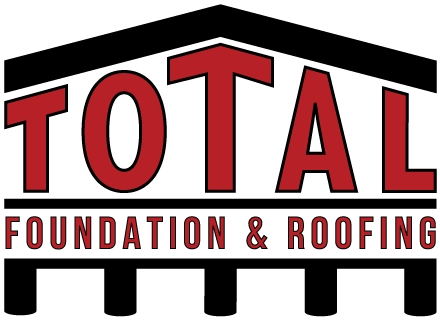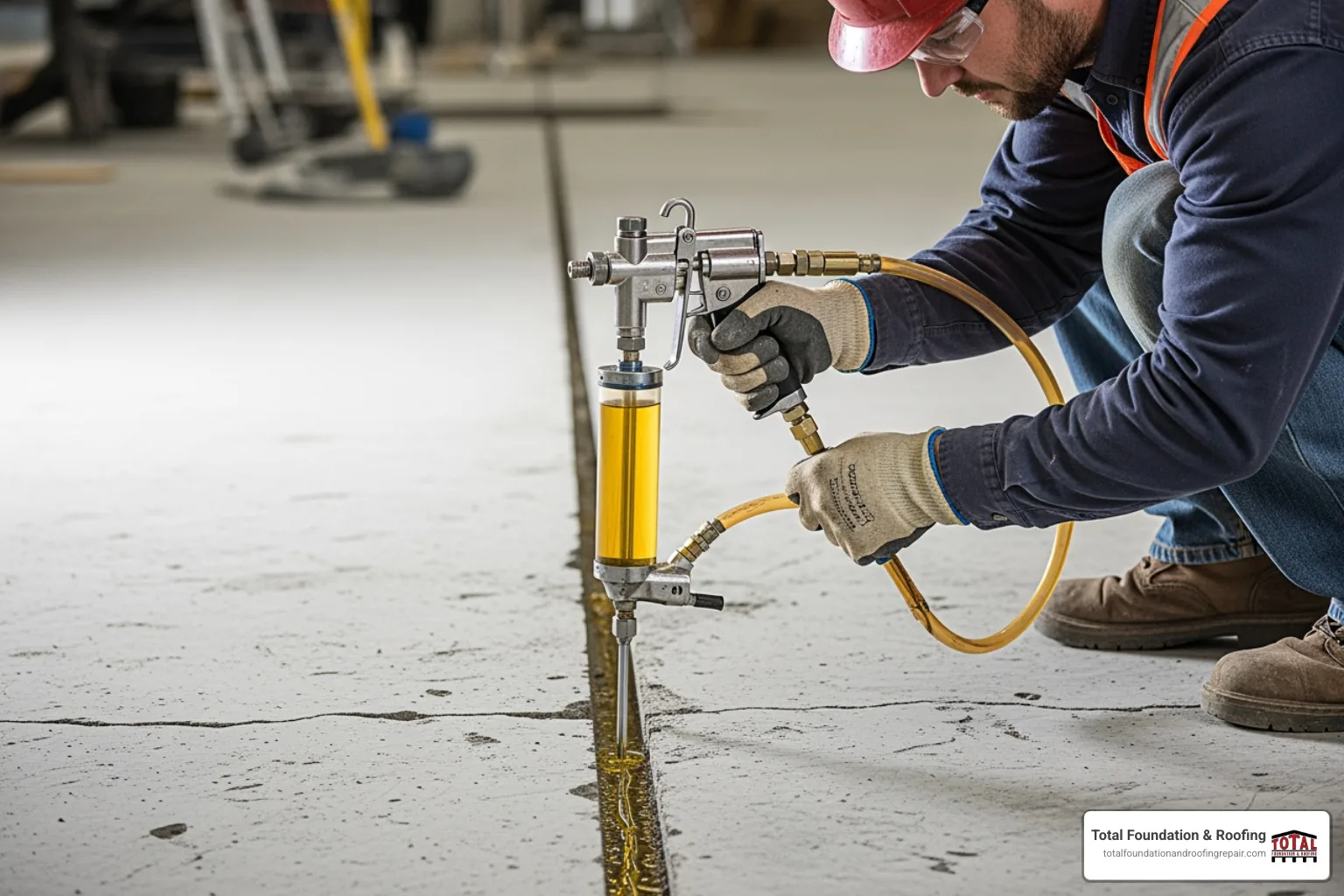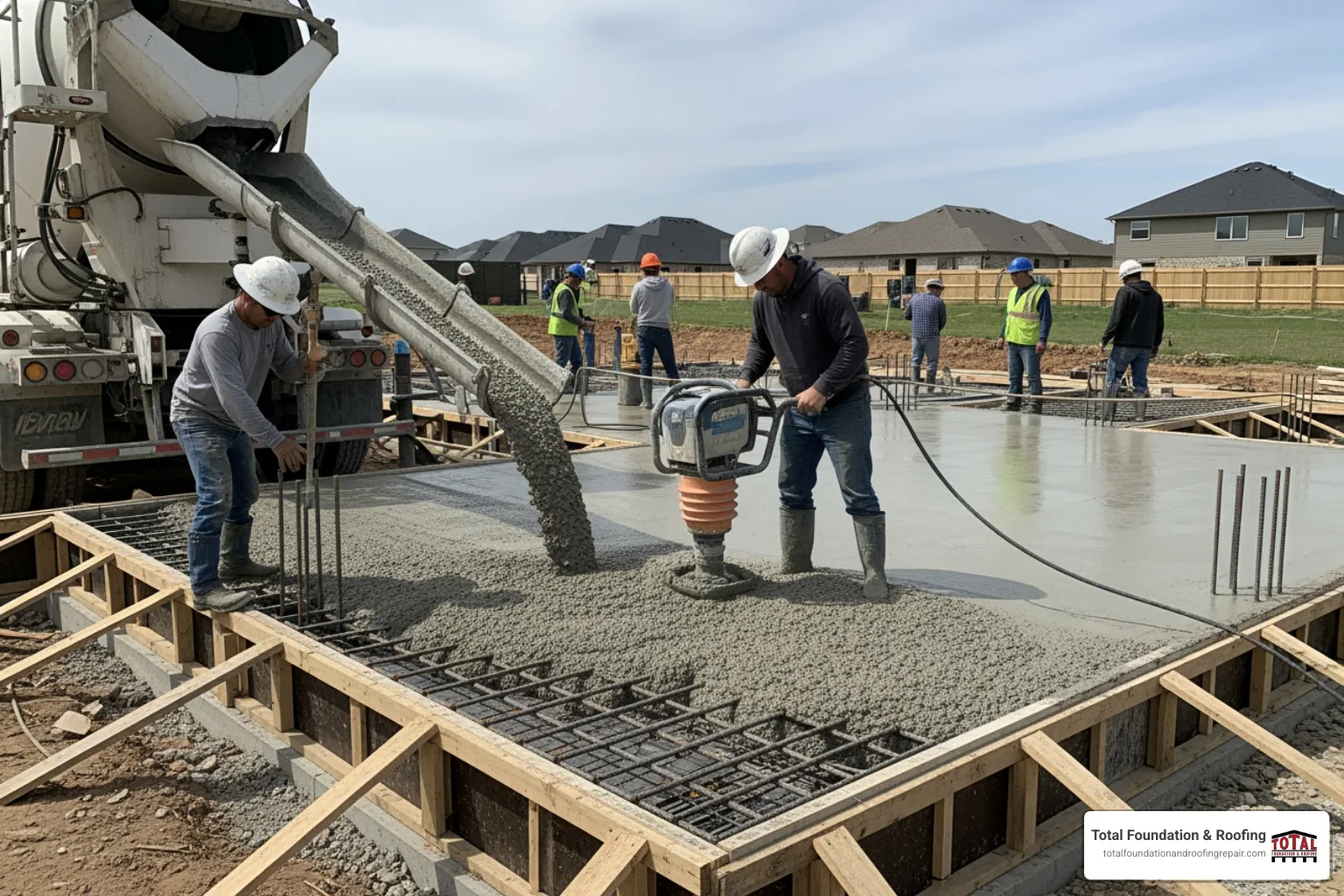Table of Contents
ToggleUnderstanding Concrete Repair Expenses
Concrete repair cost typically ranges from $175 to $3,600 for most homeowners, with a national average of $1,890. However, your actual costs will vary significantly based on the type of damage and the required repair method.
Quick Cost Overview:
- Minor crack filling: $1-$3 per linear foot
- Resurfacing: $3-$5 per square foot
- Concrete leveling: $500-$6,000 total
- Full replacement: $8-$15 per square foot
The good news is that repairing concrete is almost always cheaper than replacement. Concrete leveling, for example, costs 50-80% less than tearing out and pouring new concrete. A typical $4,000 driveway replacement might only cost $800-$2,000 to repair through lifting and leveling.
Acting quickly saves money. Small cracks that cost $175 to fill today could lead to structural issues requiring thousands in repairs if left untreated. The key is understanding what type of repair your concrete needs. Homeowners in need of reliable foundation and concrete services must weigh the costs of repair against a full replacement, but fixing issues early is almost always the more affordable path.
I’m Daniel Sowell, owner of Total Foundation & Roofing Repair with over 18 years of experience helping Texas Hill Country homeowners steer concrete repair cost decisions. My team has seen how early intervention and choosing the right repair method can save thousands compared to waiting until replacement becomes necessary.
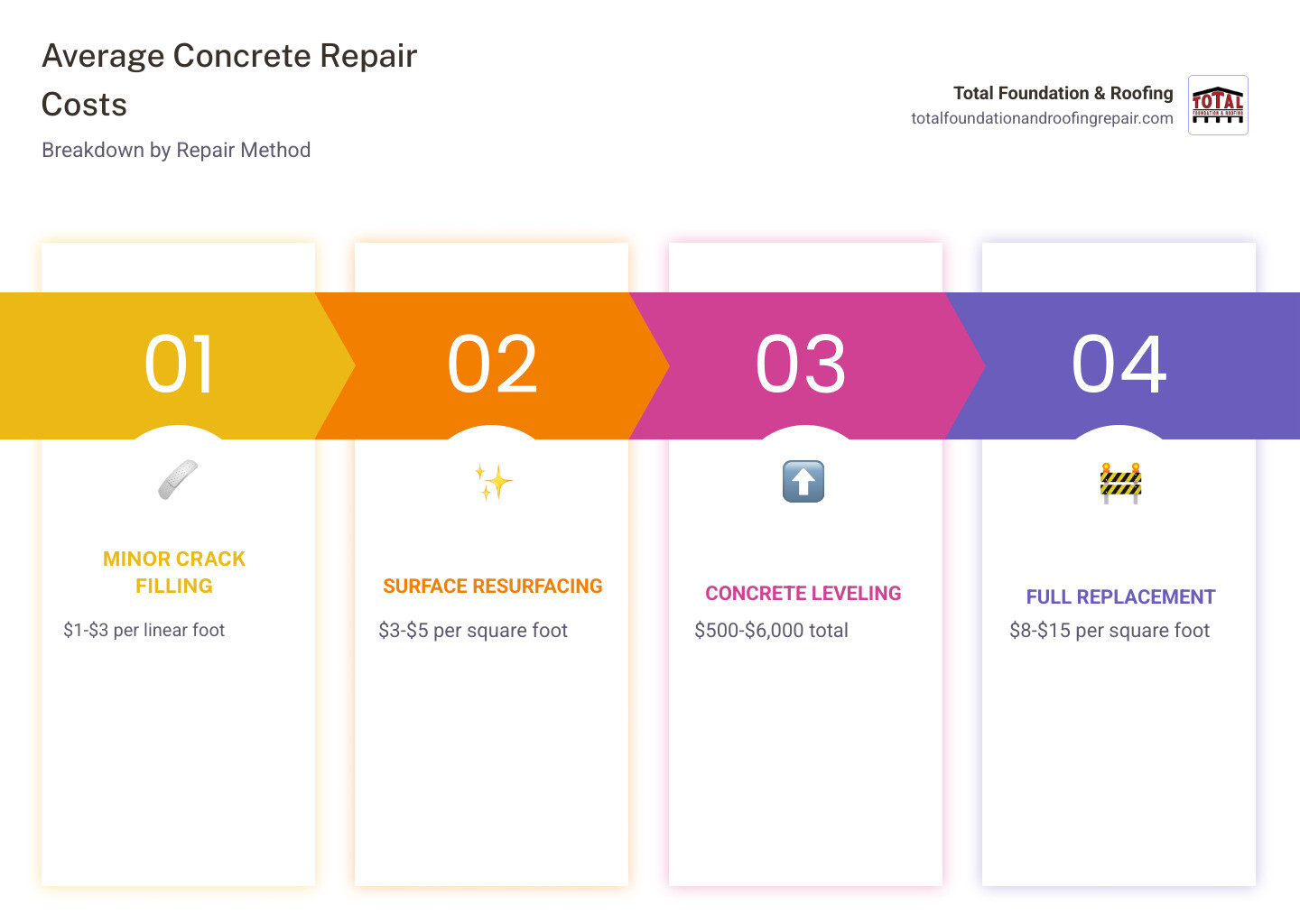
A Detailed Breakdown of Concrete Repair Cost by Method
When your concrete starts showing its age, the first question that comes to mind is usually “What’s this going to cost me?” The answer depends entirely on what type of damage you’re dealing with and how extensive it is. Let me walk you through the main repair options, from simple fixes to major overhauls.
Minor Repairs: Crack Filling and Patching
Those hairline cracks and small surface blemishes might not look like much, but they’re actually your concrete’s way of asking for help. The good news? This is where concrete repair cost stays refreshingly affordable.
Crack filling involves injecting specialized materials like epoxy, polyurethane caulk, or patch compound into those pesky cracks to stop water from sneaking in and causing bigger problems. Patching tackles small holes, surface flaking, or crumbling edges by applying concrete patch compound to restore the surface.
For professional services, you’re looking at $1 to $3 per linear foot for crack filling. Most contractors have professional trip minimums of $100 to $175 since it’s not worth their time to come out for a single tiny crack. More extensive crack repair across an entire driveway might run up to $1,000.
Patching crumbling edges typically costs $3 to $10 per square foot. If multiple sides of a section are damaged, expect to pay around $650 total.
When to patch vs. seek professional help really comes down to the size and depth of the damage. For very minor, surface-level hairline cracks, you can tackle the job yourself with a DIY crack sealer for just $5 to $15 per tube. A small patch kit runs about $5 to $10.
However, if you’re seeing deeper cracks, structural issues, or you’re just not sure what’s causing the damage, it’s time to call in the pros. Professional contractors use industrial-grade materials and know how to properly prepare the area so your repair actually lasts.
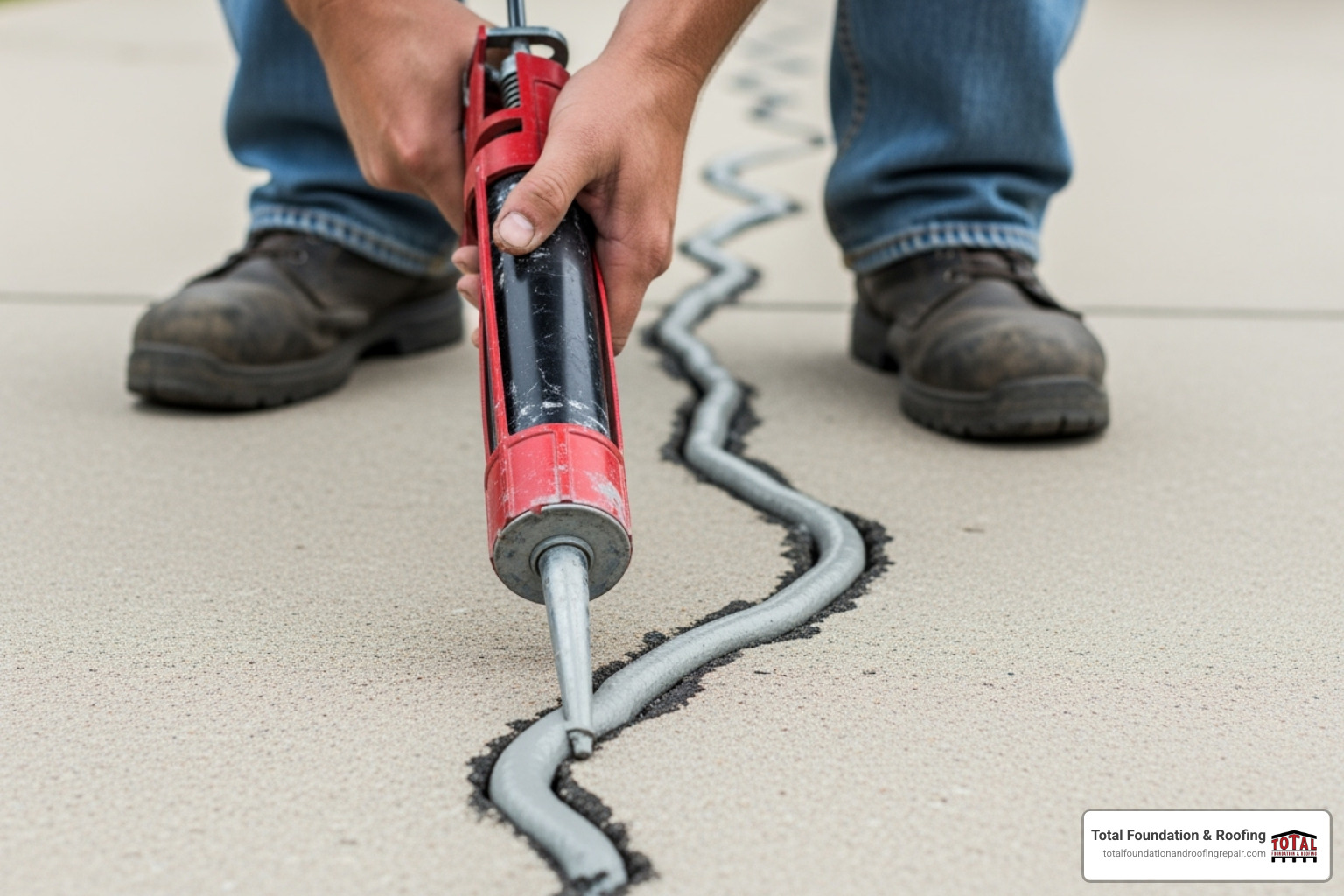
Surface Restoration: Resurfacing and Overlays
If your concrete is structurally sound but looks like it’s seen better days – think faded, worn, or covered in minor surface damage – resurfacing might be your perfect solution. It’s essentially giving your concrete a complete makeover without the expense of starting from scratch.
The process involves thoroughly cleaning and etching your existing concrete, then applying a new, thin layer of concrete or polymer-modified overlay material. This fresh surface can be finished smooth, textured, or even made decorative.
Resurfacing costs $3 to $5 per square foot, which means an average driveway runs about $2,400. For most patios, porches, or driveways, you’re looking at $2,000 to $5,000 total.
The benefits of resurfacing are impressive: it revitalizes your concrete’s appearance, covers minor imperfections, extends its lifespan, and boosts curb appeal for a fraction of the replacement cost.
Different finishes affect the price significantly. A basic brushed finish adds $1 to $3 per square foot. Decorative options like stamped finishes ($6 to $15/sq ft), stained finishes ($4 to $10/sq ft), and engraved finishes ($16+/sq ft) cost more but can mimic the look of expensive stone or tile.
Structural Fixes: Concrete Leveling Costs
When your concrete slabs start sinking or becoming uneven, you’re dealing with more than just an eyesore. Uneven concrete creates tripping hazards, causes water drainage problems, and can even direct moisture toward your home’s foundation. This is where understanding concrete repair cost for structural issues becomes crucial – but the good news is that modern lifting techniques are remarkably affordable.
Mudjacking vs. polyurethane foam injection are your two main options for lifting sunken concrete. Both methods involve drilling small holes and injecting material underneath to raise the slab back to level.
Mudjacking uses a slurry mixture of water, soil, cement, and additives. It’s the older method and generally costs less upfront, but requires larger holes and the heavy material can sometimes lead to re-settling. Polyurethane foam injection uses lightweight, expanding foam that requires much smaller holes, cures quickly, and provides excellent long-term stability. It typically costs 10-20% more than mudjacking but often comes with longer warranties.
The real winner here is the cost comparison: 50-80% less than replacement. That $4,000 driveway replacement might only cost $800 to $2,000 to lift and level instead.
Average leveling costs range from $500 to $6,000, with most companies having minimum charges between $400 and $1,500. While individual sections might cost $150 to $250 per inch of lift, larger projects benefit from economies of scale.
| Feature | Mudjacking | Polyurethane Foam Injection |
|---|---|---|
| Cost | Generally lower upfront | Slightly higher upfront (10-20% more) |
| Invasiveness | Larger holes (1-2 inches) | Smaller holes (5/8 inch) |
| Cure Time | Longer (days) | Faster (minutes to hours) |
| Longevity | Shorter warranty (2-3 years) | Longer warranty (often 5+ years) |
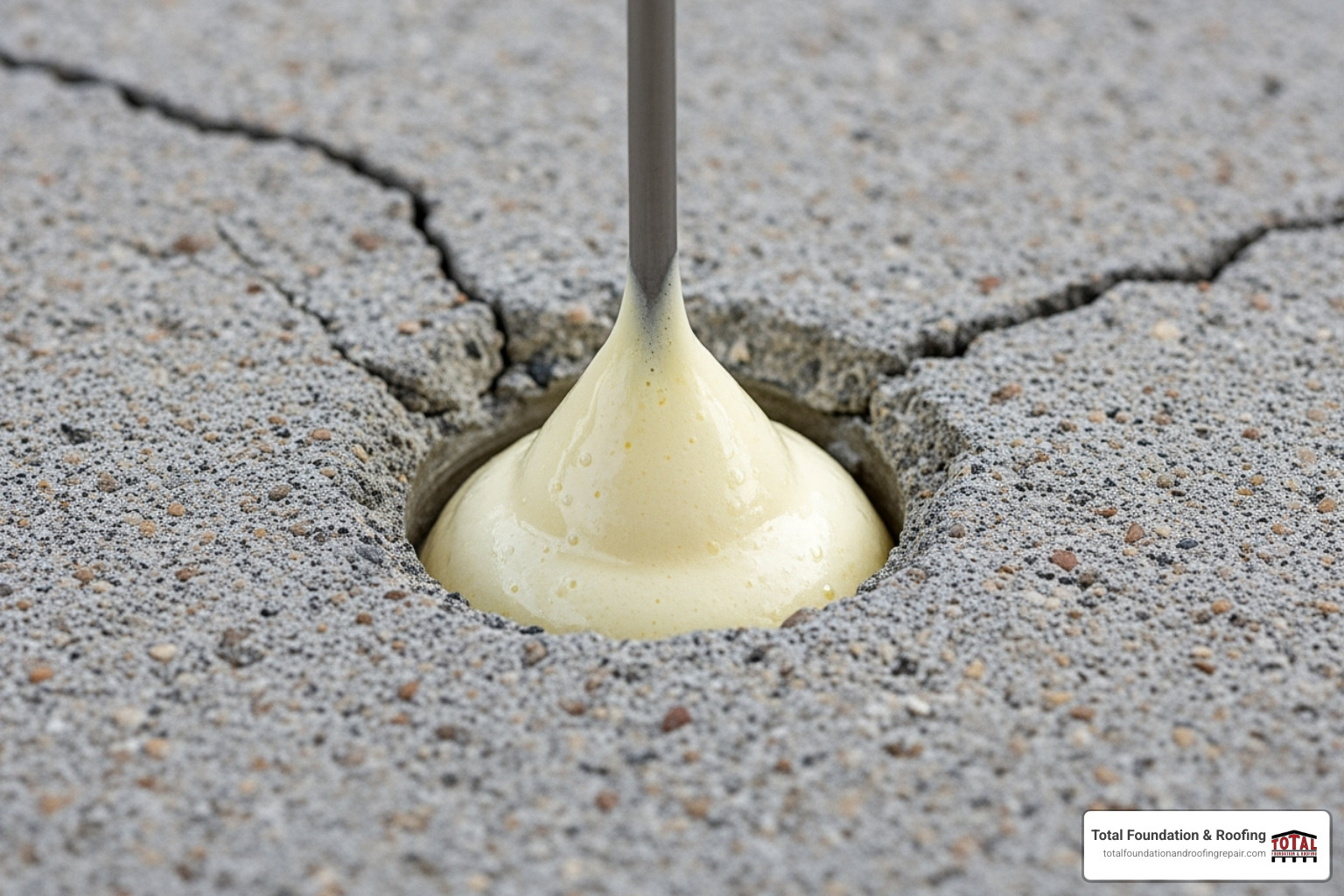
Full Replacement: When Repair Isn’t an Option
Sometimes, despite our best efforts to find a repair solution, replacement is the only sensible path forward. This happens when the concrete is so damaged that repairs would be like putting a band-aid on a broken bone.
Signs you need replacement include concrete that’s literally crumbling into pieces, severe widespread cracks throughout the entire slab, or significant heaving where sections have moved so much that leveling isn’t feasible. When the surface is extensively pitted and even resurfacing won’t provide a durable foundation, it’s time for a fresh start.
Full replacement costs $8 to $15 per square foot, with the average replacement running about $6,900 for a typical driveway. Professional jobs commonly start around $2,000 and can reach $15,000+ for extensive driveways.
Additional costs include demolition and disposal at $2 to $6 per square foot, permit requirements of $250 to $400, and potentially regrading if drainage issues contributed to the original failure. If you need to address tree root removal or install drainage solutions, those costs add up quickly too.
While replacement represents the highest upfront investment, it also provides the longest-lasting solution. A new concrete driveway can last up to 50 years with proper installation and maintenance, making it a solid long-term investment when repair isn’t viable.
Factors, Savings, and Getting an Accurate Quote
Now that we’ve covered the different repair methods and their costs, let’s talk about what really determines your final bill. As someone who’s been in this business for nearly two decades, I can tell you that two identical-looking driveways can have vastly different repair costs. Understanding these factors will help you budget properly and avoid any surprises.
Key Factors That Influence Your Final Bill
When I walk up to assess a concrete problem, I’m looking at much more than just the visible damage. Every concrete repair cost estimate takes into account several key variables that can significantly impact your final investment.
The extent of damage is the biggest factor. A few small cracks might cost a couple hundred dollars, while widespread damage across a 600-square-foot driveway could be over $5,000. The depth and structural impact of the damage are just as important as the size.
Labor rates in our area typically run between $50 to $100 per hour, and this can vary based on the complexity of your specific job. More intricate repairs requiring specialized techniques naturally take more time and expertise.
Materials make a difference in both cost and longevity. High-grade materials like epoxy or polyurethane foam cost more upfront than basic caulk or mudjacking slurry, but they offer superior durability.
Permit requirements can add $250 to $400 to your project cost for extensive repairs. Most minor repairs don’t require permits, but full replacements or major structural work often do. The inspection fees alone can run $100 or more.
Drainage solutions become necessary when poor water management is causing your concrete problems. If water is pooling and eroding the foundation under your slabs, we might recommend additional solutions like French drains or regrading. This can add around $3,000 to your project, but it’s often essential to prevent the same problems from happening again.
Tree root removal is another factor many homeowners don’t expect. Those beautiful oak trees can cause concrete to heave and crack as their roots grow. You might handle small roots yourself for $0 to $150, but professional landscaping services typically charge $300 to $800 for safe removal of larger root systems.
The unique soil conditions in the Texas Hill Country add another layer of complexity. Our expansive clay soils and limestone bedrock create specific challenges that require local expertise to recommend the most durable, long-lasting solutions for our region.
DIY vs. Pro: How to Save Money on Your Concrete Repair Cost
I get asked this question almost daily: “Can I just fix this myself?” For minor issues, absolutely – and you can save quite a bit of money doing so. But for structural problems, DIY repairs often end up costing more in the long run.
DIY works great for small jobs. Filling hairline cracks with a $15 tube of filler instead of paying a $100+ minimum service call is a huge saving. You can also rent a pressure washer for a day for a fraction of the cost of professional cleaning. For these simple cosmetic tasks, DIY can save you up to 90%.
But structural issues are different. I’ve seen too many homeowners attempt concrete leveling themselves, only to create bigger problems. Improper leveling can lead to further settling, uneven surfaces, and even safety hazards. The specialized equipment and materials we use for concrete leveling aren’t available at your local hardware store, and the techniques require experience to execute properly.
Here’s when to call us: Any time you’re dealing with sunken slabs, significant heaving, extensive cracking that suggests underlying problems, or large areas requiring resurfacing. These jobs need professional expertise not just for quality results, but for your safety and long-term satisfaction.
Three proven ways to save money on repairs are: 1) Act early to prevent small problems from becoming large, expensive ones. 2) Handle simple cosmetic fixes yourself, but hire pros for structural work. 3) Schedule repairs during the off-season when contractors may offer better pricing.
The key is knowing your limits. For complex jobs, a professional consultation is essential to assess the damage, identify root causes, and get a transparent quote. This allows you to make an informed decision about your concrete repair investment.
